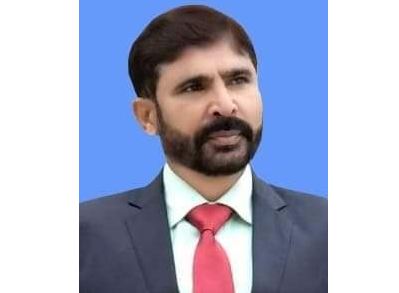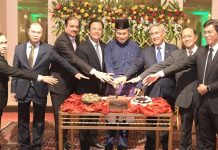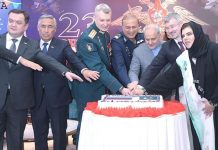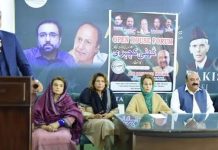Dr. Muhammad Akram Zaheer
Elitism refers to the belief that certain individuals or groups, based on their social, economic, educational, or other characteristics, are superior to others and should have a greater influence or control over society. It is often associated with the idea that those who possess certain qualities or come from certain backgrounds are inherently more valuable or deserving than others.
Elitism can manifest in various forms, including political, intellectual, cultural, and economic elitism. It can be expressed through exclusionary attitudes, behaviors, and policies that favor the privileged group and limit the opportunities and resources available to those outside it. This can result in inequality, social divisions, and a lack of diversity and inclusivity in various spheres of life.
Political elitism is the theory that a small group of people, often those with the most wealth or power, hold the most influence over political decisions and the functioning of society. Wealthy individuals can use their resources to fund political campaigns, donate to political parties, and hire lobbyists to push for their interests.
Another element of political elitism is education and expertise. Those with advanced degrees or specialized knowledge in a particular area, such as law, economics, or political science, are often seen as experts in their field and may have more influence over political decisions.
Social status is also a key element of political elitism. Those with high social status, such as members of prominent families, CEOs of large corporations, or celebrities, often have more access to political power and influence than the average person.
Institutional connections, such as membership in exclusive clubs or associations, can also contribute to political elitism. These connections can provide individuals with access to powerful networks and insider information that can help them wield more influence over political decisions.
Political power itself can be an element of political elitism. Those who hold positions of political power, such as elected officials or high-ranking government officials, often have significant influence over political decisions and the functioning of society. In the context of Pakistan, there is a long-standing perception that political power is primarily controlled by a small group of elites, including wealthy businesspeople, military leaders, and members of powerful political families.
This perception is rooted in the country’s history, which has been marked by periods of military rule, as well as the dominance of certain political parties and families. The military has played a significant role in Pakistan’s politics since its inception in 1947, and has often been accused of perpetuating elitism by supporting certain political parties or leaders over others.
Additionally, certain political families, such as the Bhutto family and the Sharif family, have maintained a stronghold on power in Pakistan for decades, despite accusations of corruption and nepotism. This has led to a perception that political power in Pakistan is largely inherited, rather than earned through merit. The perspective of political elitism in Pakistan suggests that the country’s political system is largely controlled by a small group of individuals who wield disproportionate power and influence over the rest of the population. This has contributed to a sense of frustration and disillusionment among many Pakistanis, who feel that their voices are not being heard in the political process.
In the context of Pakistan, there is a long-standing perception that political power is primarily controlled by a small group of elites, including wealthy businesspeople, military leaders, and members of powerful political families.
This perception is rooted in the country’s history, which has been marked by periods of military rule, as well as the dominance of certain political parties and families. The military has played a significant role in Pakistan’s politics since its inception in 1947, and has often been accused of perpetuating elitism by supporting certain political parties or leaders over others.
Moreover, certain political families, such as the Bhutto family and the Sharif family have maintained a stronghold on power in Pakistan for decades, despite accusations of corruption and nepotism. This has led to a perception that political power in Pakistan is largely inherited, rather than earned through merit. The perspective of political elitism in Pakistan suggests that the country’s political system is largely controlled by a small group of individuals who wield disproportionate power and influence over the rest of the population. This has contributed to a sense of frustration and disillusionment among many Pakistanis, who feel that their voices are not being heard in the political process.
Pakistan’s political elite is made up of a small group of influential and wealthy individuals who have dominated the country’s political landscape for several decades. This elite class is composed of members of powerful political families, military generals, and wealthy businessmen who have significant influence over the country’s political, economic, and social affairs.
One of the defining features of Pakistan’s political elite is their tendency to prioritize their personal interests over the country’s welfare. Corruption is rampant among the political elite, and they often use their power to enrich themselves and their families rather than improving the lives of the people they serve.
Moreover, Pakistan’s political elite is often accused of perpetuating a system of dynastic politics, in which power is passed down from one generation to the next within a small group of families. This has led to a lack of diversity in the country’s political leadership and has limited the ability of new voices to enter the political arena.
Pakistan’s political elite has a complicated relationship with the country’s powerful military establishment. The military has played a significant role in the country’s politics throughout its history, and the political elite often relies on the military’s support to maintain its grip on power. However, this relationship is often fraught with tension, and the military has been known to intervene in political affairs when it perceives that the political elite is not acting in the country’s best interests.

















